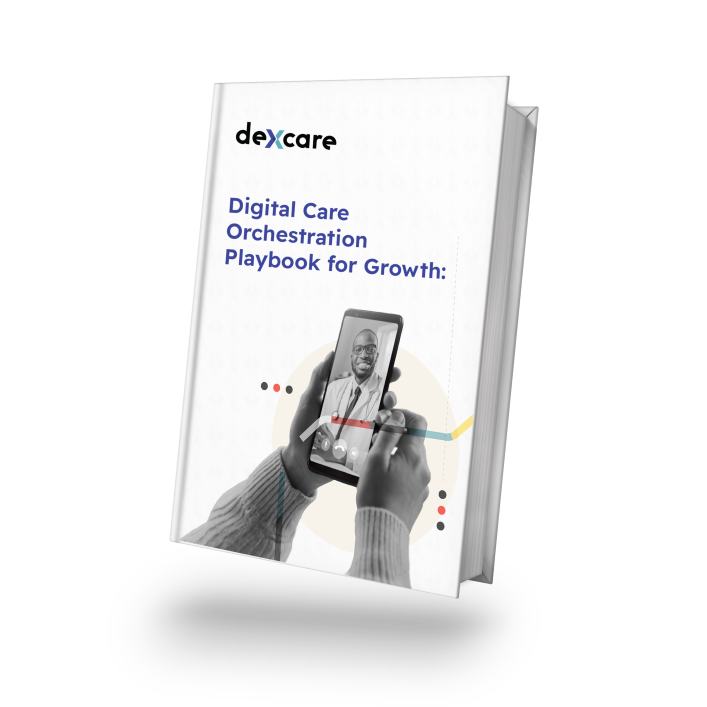A message on making hard calls, staying close to customers, and building what’s next.
By Matt Blosl, CEO of DexCare

The belief that healthcare was a tech laggard—slow to adopt, resistant to change—once held weight. That era is over.
Innovation has accelerated. Health systems are no longer cautious followers, they’re investors and early adopters with rising expectations for the partners who support them. AI pilots now launch in 90 days, not nine years. And the cost of standing still shows up in burnout and missed connections between patients and care.
We feel that shift firsthand. Our customers want roadmaps paired with the assurance that their investment won’t expire with the next tech leap. Recently, a healthcare executive put it plainly: “Innovation used to be aspirational. Now, it’s survival. Our patients expect more, and they have options.” That urgency is why health systems turn to companies like ours: to help them stay ahead.
Healthcare remains hard, and it should be. Every decision carries responsibility. That’s the reality of innovating in this space. And the trust we earn is what allows us to stay in the room and be part of the solution.
Even as the pace picks up, the demands don’t ease. Success in healthcare remains uniquely tough—at times, unforgiving. But for those of us who choose to stay in it, the work is worth it. Why? Because the problems we’re solving, from fragmented scheduling to uneven access to care, impact real lives.
But when an industry transforms, so must the companies that serve it.
We’ve been in healthcare long enough to see how suddenly the ground can give way. Virtual care went from a test case to default in a blink and altered everything from patient behavior to financial models. Anticipating what’s next requires resilience and the agility to build with foresight from the start.
And just as virtual care redefined access, AI is reshaping teams, tools, and what gets built.
Nearly half of tech leaders now say AI is fully integrated into their core strategies. Meanwhile, EHR incumbents are expanding beyond their traditional lanes. What was once the territory of emerging tech companies—the ones willing to cross the chasm—is now shared ground. To stay valuable, we must stay unmistakably better at the things only we can do. That starts with taking a hard look at how we work.
In recent months, DexCare has undergone a strategic realignment. Teams have been restructured from leadership to the front lines. And we’ve made hard choices about how we operate to protect what made us distinct from day one. We’re sharpening the core, not shifting away. That means investing more deeply in what works and evolving what must. We’re doubling down on the fundamentals—our platform, our partnerships, our purpose—and enhancing them with the talent and technologies needed to pull ahead.
We weren’t built around the healthcare system but inside it. DexCare was incubated within Providence and forged by the same constraints our customers face every day. That origin still shapes how we think and plan for the future. We know the workflows, the bottlenecks, and the stakes because we’ve lived them. That’s where we started, and it’s why we’re built to last.
While we embrace change, our mission holds steady, even as the path to fulfilling it evolves. We’re moving through accelerated engineering cycles, smarter architecture, and a market that expects more, and quicker. That work is defining our direction. More AI to route care, more automation to unlock capacity, and more integration with our customers’ priorities, not just our own.
We’ve reallocated resources to speed delivery, increase responsiveness, and push further into co-innovation. We’re finalizing both our short-and long-term product roadmap in collaboration with customers—work that’s set to be completed next quarter. And we’re expanding our bench with domain experts in payer strategy, data science, and AI-native product development, adding people who get healthcare’s complexity and know how to meet the moment.
Health systems aren’t exempt from headwinds either. They’re navigating a cascade of external forces—tariffs, labor shortages, and uncertainty around public funding—while being asked to transform digitally, absorb financial shocks, and protect patient care.
Pressure reveals who’s actually helping and where we stand apart. While others offer one-size-fits-all solutions, DexCare is in the room, shoulder-to-shoulder with our customers, helping them rethink how care is accessed, optimized, and scaled. One leader in upstate New York told us: “The market is catching up on features, but DexCare is helping us reimagine what’s next.” That’s proof that proximity still matters.
That kind of confidence doesn’t happen by accident. It shows up in the data. Our recent KLAS Spotlight reinforced what we hear in every customer conversation: they trust us, they recommend us, and they count on us to remove friction, not add to it. That’s the charge, and it’s my job as CEO to make sure our engine is built to see over the horizon.
So, we’re leaning into what we do best: making it easier for people to find care and giving clinicians the bandwidth to deliver it. That’s how our customers are treating 40% more patients with the same resources. That’s how we’ve helped cut average wait times by five days. And that’s how we’ve increased patient volume by 24%.
To every founder, CEO, and tech builder in this fight: yes, it’s harder. But that’s the cost of doing work that counts.
We’re here for it.






